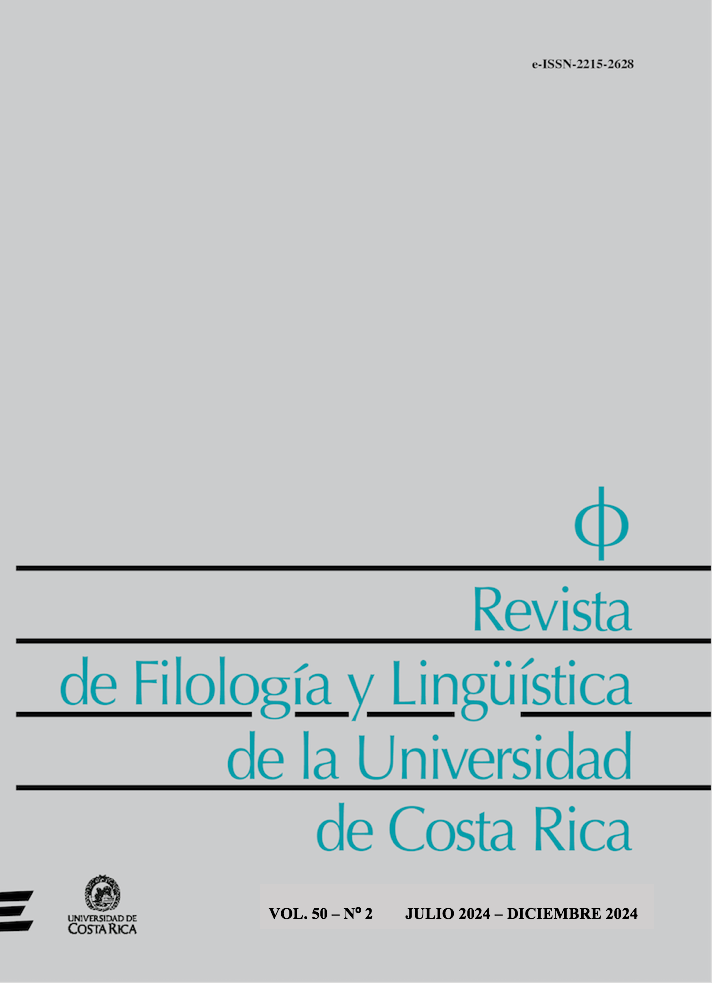Abstract
This action research study focused on determining the contribution of digital reading through the Edpuzzle platform to improve reading comprehension in 21 fifth-grade students from a municipal elementary school in Chile. It was carried out over seven sessions during which reading comprehension activities in Edpuzzle were used to identify specific information. Data were collected through statistics provided by Edpuzzle, a Likert scale, and two focus groups. Although the results did not reveal significant progress in the evaluated skill, most participants expressed a positive perception of their performance during the interventions. Therefore, these findings may be relevant for those seeking to use online platforms like Edpuzzle to improve students' reading comprehension, as despite the lack of evident improvements, participants enjoyed the activities and experienced a sense of achievement.
Literaturhinweise
Agencia de la Calidad de la Educación. (2018). Informe de resultados estudio nacional inglés III medio 2017. Ministerio de Educación. https://archivos.agenciaeducacion.cl/Informe_Estudio_Nacional_Ingles_III.pdf
Anderson, N. (2014). Metacognitive reading strategy awareness of ESL and EFL learners. The Catesol Journal, 16(1), 11-27. https://www.researchgate.net/publication/291998257_Metacognitive_Reading_Strategy_Awareness_of_ESL_and_EFL_Learners
Aritonang, I., Lasmana, S. & Kurnia, D. (2018). The analysis of skimming and scanning technique to improve students in teaching reading comprehension. PROJECT (Professional Journal of English Education), 1(2), 101-106. https://doi.org/10.22460/project.v1i2.p101-106
Banditvilai, C. (2020). The effectiveness of reading strategies on reading comprehension. International Journal of Social Science and Humanity, 46-50. https://www.researchgate.net/publication/341083225_The_Effectiveness_of_Reading_Strategies_on_Reading_Comprehension
Bazurto, N. & García, C. (2021). Flipped classroom with Edpuzzle to strengthen reading comprehension. Polo del conocimiento, 6(3), 324-341. https://www.hltmag.co.uk/dec22/flipped-classroom
Berardo, S. (2006). The use of authentic materials in the teaching of reading. The Reading Matrix. 6.
Burns, A. & Richards, J. C. (2012). Doing action research in English language teaching: a guide for practitioners (2nd ed.). Routledge.
Carr, N. (2020). The shallows: What the Internet is doing to our brains. WW Norton & Company.
Dewi, K. (2022). Analysis on 7th grade students’ reading comprehension through skimming- scanning techniques. Journal of Educational Study, 2, 72-82. https://doi.org/10.36663/joes.v2i1.261.
Edpuzzle. (4 December 2023). Edpuzzle [web-based eLearning application]. https://edpuzzle.com/
Edvieanto, E., Munandar, R. & Munandar, A. (2019). Improving students’ reading comprehension using scanning technique project. Professional Journal of English Education, 1(2), 157. https://doi.org/10.22460/project.v1i2.p157-164
Elleman, A. & Oslund, E. (2019). Reading comprehension research: implications for practice and policy. Policy Insights from the Behavioral and Brain Sciences, 6(1), 3-11. https://doi.org/10.1177/2372732218816339
Ellis, G. (2014). ‘Young learners’: clarifying our terms. ELT journal, 68(1), 75-78. https://doi.org/10.1093/elt/cct062
Enever J. (2011). Early language learning: evidence from the ELLiE study. British Council.
Fabillar, F. (2022). Edpuzzle App: A reading remediation tool for grade 4 struggling readers. ScienceOpen Preprints.
Friederici, A. D. (2017). The cortical language circuit: From auditory perception to sentence comprehension. Trends in Cognitive Sciences, 21(11), 899-909. https://doi.org/10.1016/j.tics.2017.08.006
Ganito, C. & Ferreira, C. (2016). Women and digital reading: the gendering of digital reading practices. In C. Cerqueira, R. Cabecinhas & S. I. Magalhães (Eds.), Gender in focus: (new) trends in media (pp. 205-232). CECS.
Gliner, J. A., Morgan, G. A. & Leech, N. L. (2016). Research methods in applied settings: an integrated approach to design and analysis, Third Edition. Routledge.
Gravetter, F. & Wallnau, L. (2014). Statistics for the Behavioral Sciences. Cengage Learning.
Idrayani, N. (2016). Language development at early childhood. International Conference on Education (IECO) FKIP UNMUH JEMBER, 1(1), 279-289. https://jurnal.unmuhjember.ac.id/jurnal.unmuhjember.ac.id/
Kelly, K. (2016). The inevitable: Understanding the 12 technological forces that will shape our future. Penguin.
Kendeou, P., McMaster, K. L. & Christ, T. J. (2016). Reading comprehension: core components and processes. Policy Insights from the Behavioral and Brain Sciences, 3(1), 62-69. https://doi.org/10.1177/2372732215624707
Kersten, K., & Rohde, A. (2013). Teaching English to young learners. Language acquisition and use in multilingual contexts, 107-121. https://www.researchgate.net/publication/269690577_Language_Acquisition_and_Use_in_Multilingual_Contexts_Theory_and_Practice
Kusumawardana, Z. & Akhiriyah, S. (2022). EFL university students’ metacognitive awareness of reading strategy and its correlation with their reading comprehension. Linguistics and ELT Journal, 10(1). https://doi.org/10.31764/leltj.v10i1.8879
Liu, Z. (2012). Digital reading. Chinese journal of library and information science (English edition), 85-94. https://scholarworks.sjsu.edu/cgi/viewcontent.cgi?article=1067&context=slis_pub
MINEDUC (2023). Actualización de la priorización curricular para la reactivación integral de aprendizajes: idioma extranjero inglés. Ministerio de Educación. Chile.
Nunan, D. (2010). Teaching English to young learners. Anaheim University.
Orellana, P., Melo, C., Baldwin, P., De Julio S. & Pezoa J. (2020). The relationship between motivation to read and reading comprehension in Chilean elementary students. Reading and Writing, 33, 2437-2458. https://doi.org/10.1007/s11145-020-10051-3
Pinter A. (2017) Teaching young language learners. Oxford University Press.
Pinter A. (2006). Teaching young language learners. Oxford University Press.
Pueo, B., Jimenez-Olmedo, J., Penichet-Tomas, A. & Carbonell-Martínez, J. (2017). Investigación en docencia universitaria. Diseñando el futuro a partir de la innovación educativa. En R. Roig-Vila (Ed.), Investigación en docencia universitaria. Diseñando el futuro a partir de la innovación educativa (pp. 694-702). Octaedro.
Tomal, D. R. & Hastert, D. J. (2010). Action Research for Educators (The Concordia University Leadership Series) (English Edition) (2.a ed.). Rowman & Littlefield Publishers.
Wilkinson, D. & Birmingham, P. (2003). Using Research Instruments: A Guide for Researchers. Psychology Press.
Wolf, M. & Potter, K. (2018). Reader, come home: The reading brain in a digital world. Harper.
##plugins.facebook.comentarios##

Dieses Werk steht unter einer Creative Commons Namensnennung - Nicht-kommerziell - Keine Bearbeitung 3.0 International -Lizenz.


